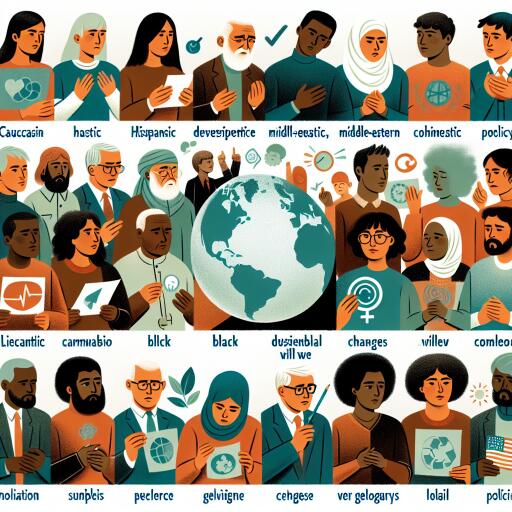
Emotional Response to Climate Change Affects Policy Preference to Tackle It
The intricate tapestry of human emotion plays a pivotal role in shaping our responses to the global challenge of climate change, influencing not just our awareness and personal commitment but also our preference for specific policy measures designed to mitigate its impacts. A groundbreaking study has illuminated the profound effect of individual emotional responses – be they guilt, anger, hope, or fear – on the inclination towards certain climate policies.
Unpacking the complex emotional engagement individuals have with climate change, the study reveals that those who experience guilt over their carbon footprint are more inclined to endorse policies that have a financial cost, such as a tax on fossil fuels. This act of penance underscores a readiness to personally bear the cost for the greater good of the environment.
Conversely, optimism or despondency about the planet’s future steers people towards supporting more proactive measures. This includes substantial investments in green infrastructure, indicating a belief in the power of transformative change to address climate woes. Similarly, the study notes that individuals fueled by anger towards the current state of environmental degradation tend to lean towards policies that impose financial penalties, viewing them as a necessary tool for achieving climate justice.
Amongst the palette of emotions, fear stands out as the most powerful motivator for sweeping policy support, according to the findings from researchers at George Mason University in Virginia, US. Individuals driven by fear are reportedly more likely to back a broad array of climate policies, particularly those regulation-based interventions like carbon emissions standards, which are pivotal in curtailing the effects of climate change.
This research ventures into largely uncharted territory by dissecting the nuanced relationship between specific emotions and the climate policy preferences they engender. Published in the journal PLoS Climate, it underscores the potential of emotional engagement in mobilizing public opinion and policy support for combating climate change. The study posits that tapping into these emotional currents could prove instrumental in rallying support for essential climate actions.
Employing surveys as their primary tool, the researchers explored the emotional landscape of the public’s response to climate change, examining feelings of guilt, anger, hope, sadness, and fear. Participants were asked about their emotional reactions to climate change and their support for various policy initiatives aimed at addressing its myriad challenges. These ranged from increasing federal funding for low-income and minority communities disproportionately affected by pollution to implementing comprehensive regulatory measures.
The research, which systematically documented responses over a dozen years from 2010 to 2022, offers invaluable insights into the dynamic interplay between emotion and policy in the realm of climate action. It underscores the importance of acknowledging and harnessing the power of emotional responses to foster a more engaged and proactive stance towards environmental stewardship and policy reform.
In conclusion, the study highlights the pivotal role emotions play in shaping public opinion and policy preference on climate change. By understanding and leveraging these emotional drives, policymakers, activists, and organizations can craft more effective strategies to combat climate change, rallying a diverse and motivated coalition of supporters committed to safeguarding our planet for future generations.





Leave a Reply